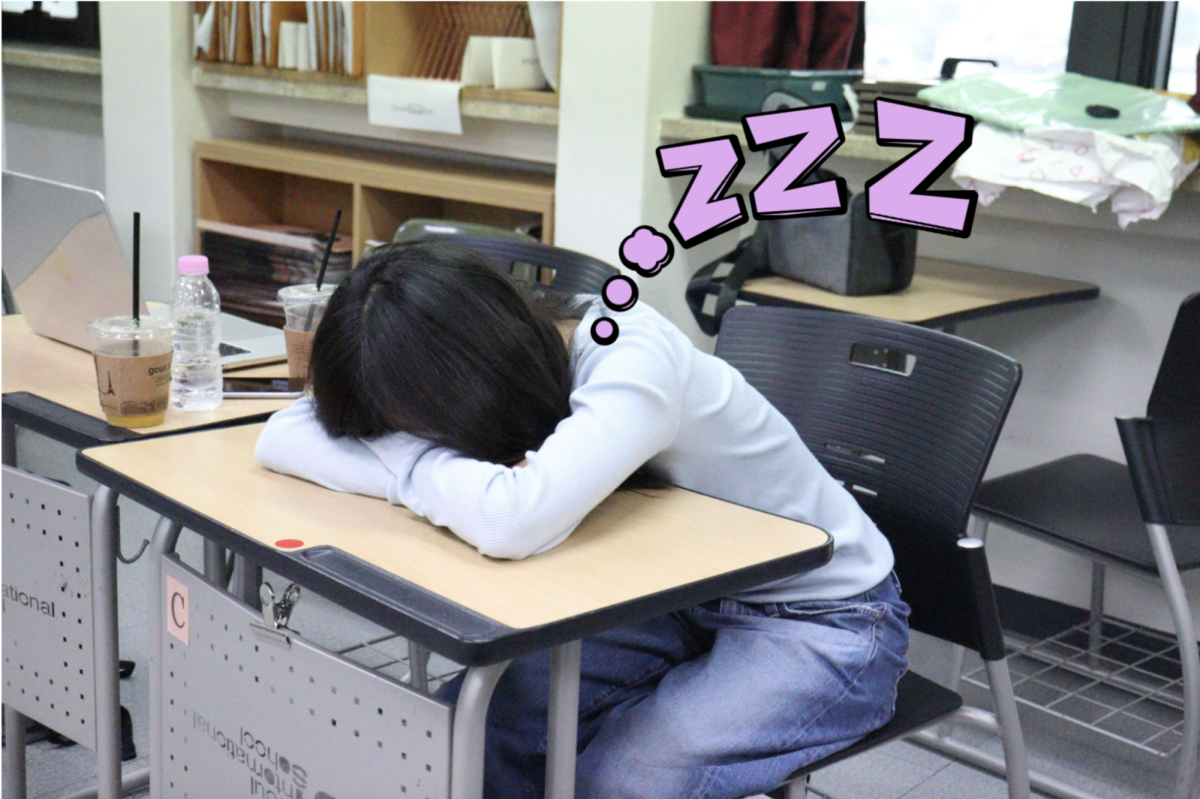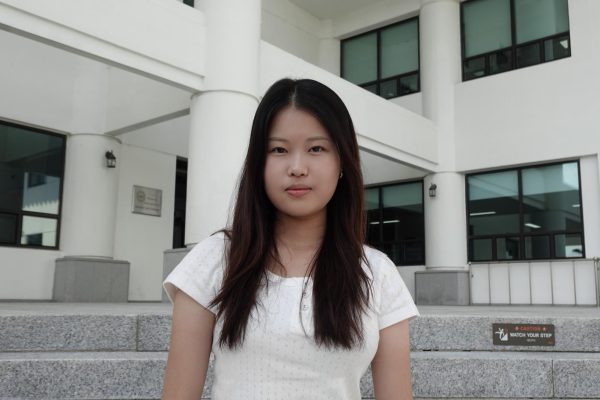By the end of the first period, fatigue is already visible in classrooms. Some students lean back in their chairs with glazed eyes, and others rest their heads on the desk. In hallways, students complain about how little sleep they managed to get the night before. At SIS, sleep deprivation has become a chronic problem in students’ lives, raising the question of how severe the sleep crisis has actually become on campus.
To this end, an Instagram poll of SIS students across grades 9–12 was conducted on the question: “How many hours of sleep do you usually get on a school night?” The results showed that 35 percent of students sleep five hours or less, 38 percent usually get six hours, 19 percent get seven hours, and only 8 percent sleep eight hours or more. The data demonstrates that nearly three-quarters of SIS students sleep fewer than seven hours a night, which is significantly below the American Academy of Sleep Medicine (AASM) recommended range of eight to ten hours for teenagers. Exhaustion, in other words, has become a critical problem for most students at SIS.
When asked about the cause of their sleep deprivation, 79 percent of respondents cited schoolwork and extracurricular commitments, while 21 percent pointed to phone distractions as the main reason for lost sleep. Even when assignments were completed, many students admitted that late-night scrolling or mental stress made it difficult to wind down before bed.
This trend is also found ubiquitously outside of SIS. Surveys across South Korea show that Gen Z is one of the most sleep-deprived generations. In fact, the average South Korean teenager sleeps seven hours and 18 minutes a night, nearly an hour less than the OECD average. The poll suggests SIS students fit within this broader trend.
Chronic lack of sleep has been linked to weaker memory, difficulty concentrating, and a greater risk of anxiety and depression. Countless studies have shown that adolescents who consistently sleep less than the recommended hours are more likely to face academic struggles, mood swings, and long-term health problems. For teenagers, the costs of chronic deprivation add up quickly, shaping not only how we feel during the school day but also how we develop over the years.
“Sleep affects nearly every system in the body,” Chris Bracciano, AP Psychology teacher, said. “The biggest short-term issues for teenagers are trouble concentrating, weakened immunity, and poorer memory retention. You actually save your memories while you sleep, so if you do not get enough before a test, you will do worse. Growth hormones are also released while you sleep, and your body repairs itself, so if you are training or exercising, lack of sleep slows that down.”
As academic expectations rise, many students find themselves sacrificing rest just to keep up, unaware that this trade-off quietly erodes both their health and performance. Sleep deprivation, after all, creates a cycle of exhaustion that is difficult to break.
“Managing time well and putting your phone away at night can make a huge difference in sleep quality,” Mr. Bracciano said. “Even if you are getting a decent amount of sleep, using your phone before bed lowers sleep quality and prevents your body from fully resting. Making time for sleep, and valuing it as part of your routine, is essential.”
If most SIS students are spending their high-school years running on six hours of sleep, the issue points to a grave concern about the sustainability of our routines and the normalization of exhaustion. The poll made one thing clear: sleep is a school-wide problem. While some degree of sleeplessness may be inevitable, students should be aware of its long-term costs and take steps to guard the hours of rest they can control.


